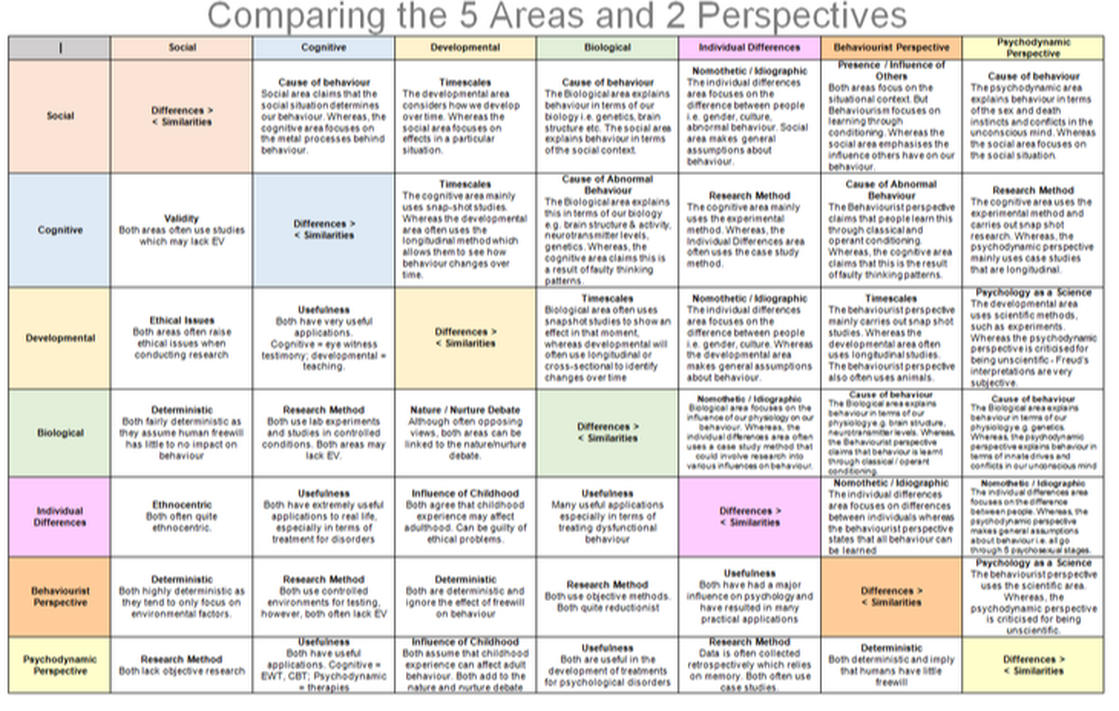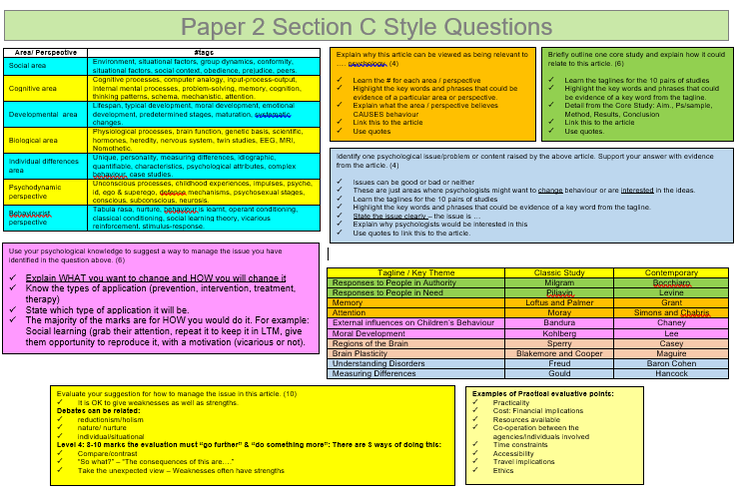Overview
|
Section A: Core studies
|
|

Core Study Summaries
can be found at this link
can be found at this link

Create your own essay questions:
Topic Spinners
can be found at the links here
Topic Spinners
can be found at the links here

Paper 2 Revision Checklist
can be found here
can be found here
Practice, practice, practice!
The best way to prepare for Paper 2 is to practice, practice, practice. You can do this by:
- Completing all of the past paper questions which have ever been asked.
- Take the practice tests on Dynamic Learning http://my.dynamic-learning.co.uk/
- Best Youtube videos
- Complete the exercises in your textbook
- Complete the exercises in the workbook. This is the workbook on Amazon for around £6.
WHAT IS THE PAPER LIKE?
Section A: Core Studies
- There are questions based on the core studies individually, in their pairs and in terms of their key theme.
- Detail, precision and concision is really important in this section.
Section B: Areas, Perspectives and Debates
|
| ||||||||||||
hnjbnb,
Paper 2 Section C Style Questions





